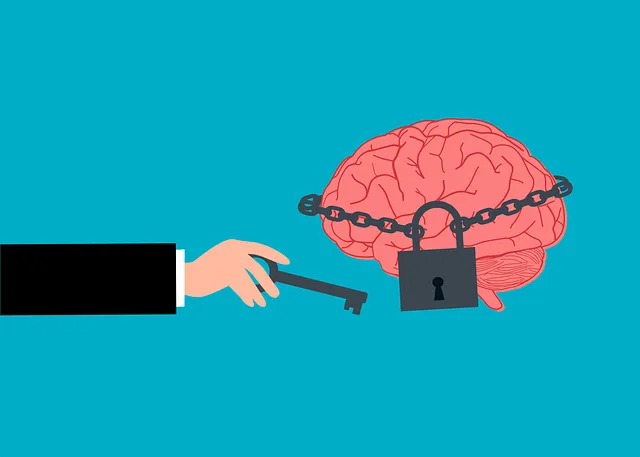Community outreach programs, like those by Kaiser in Englewood, transform mental healthcare accessibility by combining educational workshops, peer support, and confidential counseling. Tailored to address unique community needs, these initiatives increase awareness, empower individuals to manage their mental health effectively, and break down barriers to care, ensuring everyone has an opportunity to thrive. Through a multi-step process involving needs assessment, strategic planning, partnerships, and policy analysis, Kaiser's programs help Englewood residents access mental health services. Success is measured using surveys, interviews, and clinical assessments, tracking improvements in mental health status and well-being to refine and enhance overall mental well-being.
Community outreach programs play a pivotal role in enhancing mental health service accessibility, particularly in underserved areas like Englewood. This article delves into the significance of such initiatives, highlighting their potential to improve mental well-being outcomes. We explore Englewood’s unique challenges in accessing mental health care and provide a comprehensive guide for Kaiser on implementing effective outreach strategies. Additionally, we discuss evaluation methods to assess the impact of these programs, focusing on how to bridge the gap between residents of Englewood and available mental health services through Kaiser.
- Understanding Community Outreach Programs: Their Role in Mental Health Service Delivery
- Englewood's Unique Challenges: Barriers to Accessing Mental Health Care
- Implementing Effective Outreach Strategies: A Step-by-Step Guide for Kaiser
- Measuring Success: Evaluating the Impact of Community Outreach Programs on Mental Health Outcomes
Understanding Community Outreach Programs: Their Role in Mental Health Service Delivery

Community outreach programs play a pivotal role in enhancing mental health service delivery, especially in areas like Englewood where access to such services might be limited. These initiatives aim to bridge the gap between healthcare providers and underserved communities, ensuring that everyone has the opportunity to prioritize their mental wellness. By using innovative strategies, these programs make mental health care more accessible, understandable, and acceptable to diverse populations.
For instance, Kaiser’s engagement in Englewood demonstrates how community outreach can transform mental health service delivery. Through educational workshops, peer support groups, and confidential counseling sessions, residents gain the knowledge and confidence needed to manage their mental health effectively. This approach not only increases awareness about Mental Health Awareness but also fosters a sense of empowerment, enabling individuals to take charge of their well-being. Moreover, by tailoring services to meet the unique needs of the community, Kaiser boosts Confidence Boosting efforts, ensuring that everyone has a chance to thrive and contribute to society.
Englewood's Unique Challenges: Barriers to Accessing Mental Health Care

Englewood faces unique challenges when it comes to accessing mental health care. As a community with limited resources and infrastructure, many residents struggle to find and afford quality mental wellness services. Barriers such as transportation issues, lack of awareness about available programs, and financial constraints often prevent individuals from seeking the help they need. These obstacles are particularly acute for vulnerable populations, including the elderly, low-income families, and those with chronic conditions that require ongoing mood management.
To address these challenges, organizations like Kaiser have been working to implement mental health coaching programs tailored to Englewood’s specific needs. Through initiatives focused on depression prevention and promoting mental wellness coaching, residents are gaining access to much-needed support. By combining community outreach with evidence-based practices, these programs aim to break down barriers and ensure that everyone in Englewood has the opportunity to improve their mental health and overall quality of life. Kaiser’s efforts underscore the importance of developing targeted interventions that resonate with the unique circumstances of communities like Englewood.
Implementing Effective Outreach Strategies: A Step-by-Step Guide for Kaiser

Implementing effective outreach strategies is a multi-step process that can significantly improve access to mental health services, such as those provided by Kaiser in Englewood. Firstly, conducting a needs assessment to understand the specific mental health challenges and resources within the community is crucial. This step involves gathering data through surveys, focus groups, or interviews with local residents, healthcare providers, and community leaders to identify gaps in service delivery and unmet needs. Once these insights are gathered, Kaiser can tailor its outreach initiatives to address the unique requirements of the Englewood community.
Secondly, developing a comprehensive strategy that incorporates various channels is essential. This could include leveraging social media platforms, partnering with local schools, churches, and community centers, or organizing informational sessions in accessible public spaces. Incorporating mindfulness meditation workshops or emotional healing processes as part of these initiatives can foster mental well-being within the community. Additionally, advocating for Mental Health Policy Analysis and Advocacy ensures that systemic barriers are addressed, enabling long-term, sustainable access to care. Regular evaluation and feedback loops should be implemented to measure the success of these strategies and make necessary adjustments to continuously improve outreach efforts.
Measuring Success: Evaluating the Impact of Community Outreach Programs on Mental Health Outcomes

Measuring the success of community outreach programs, particularly those aimed at improving mental health outcomes, is paramount. Evaluating their impact goes beyond mere participation; it involves assessing changes in mental health status and well-being among the targeted communities. By utilizing tools like surveys, interviews, and clinical assessments, organizations like Kaiser can gauge how these programs influence access to mental health services in areas such as Englewood.
Through these evaluations, the effectiveness of initiatives focused on resilience building and Mind Over Matter principles can be determined. For instance, tracking improvements in mental health awareness and coping strategies among participants over time highlights the program’s success in fostering a supportive community environment. Such insights are crucial for refining these outreach efforts, ensuring they meet the unique needs of diverse communities, and ultimately enhancing overall mental well-being.
Community outreach programs, such as those implemented by Kaiser in Englewood, play a pivotal role in enhancing mental health service delivery. By addressing unique challenges like barriers to access, these initiatives ensure that individuals in underserved communities can get the mental health support they need. Through a structured approach, as outlined in this guide, organizations like Kaiser can effectively reach and assist those who might otherwise be excluded. Measuring success through impact evaluation is crucial to refining strategies and ultimately improving mental health outcomes for all. For Englewood residents seeking mental health services, knowing how to access these programs through Kaiser offers hope and a clear path forward.






